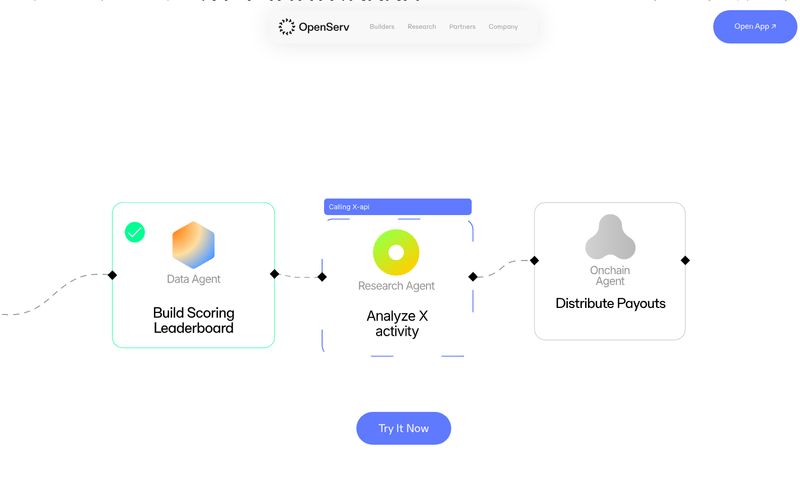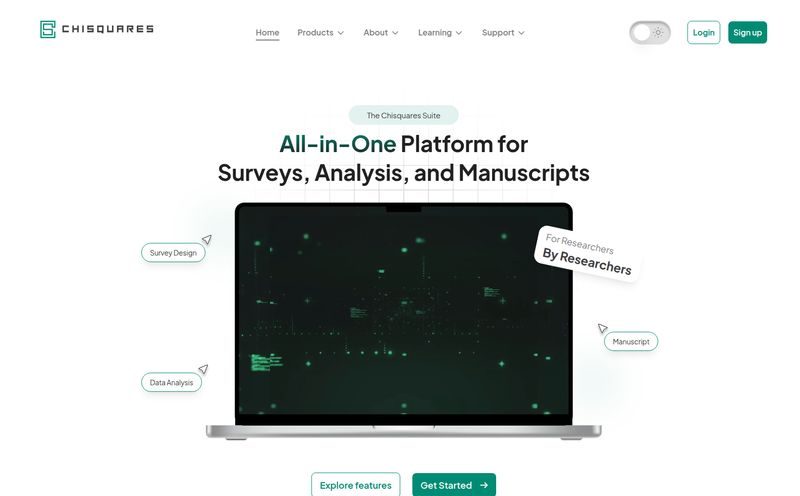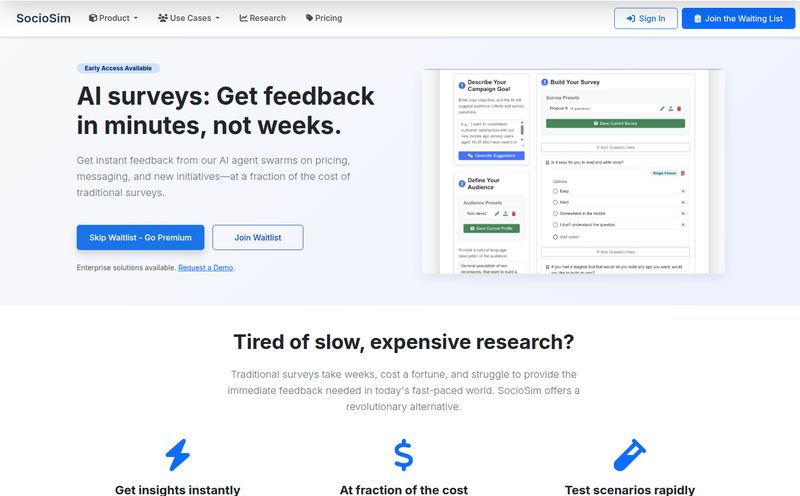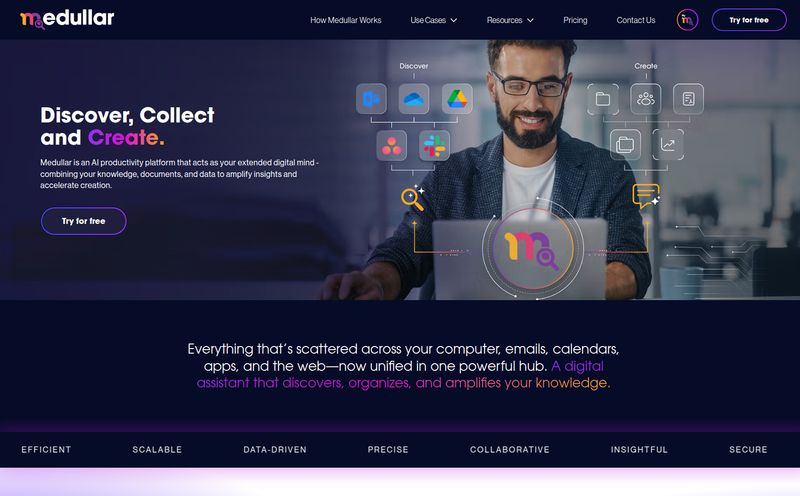I’ve been in the SEO and tech space for years, and I’ve seen countless platforms promise to “revolutionize” learning. It’s a word that gets thrown around so much it’s almost lost all meaning. So when I first heard about a robotics education platform called Duckietown, I was skeptical. The name alone sounds more like a mobile game for toddlers than a serious academic tool that spun out of MIT.
But then I started looking into it. And folks, what I found was... genuinely cool. It’s quirky, it’s ambitious, and it might just be one of the most interesting approaches to teaching complex topics like AI and autonomous systems that I’ve ever seen. It’s not just about watching videos or reading tutorials. It’s about building, coding, and deploying a fleet of tiny, autonomous rubber-ducky-toting taxis in a miniature city. Seriously.
Forget dry textbooks and abstract theories for a moment. What if learning about self-driving cars meant actually building one? That's the core idea here.
So What Exactly Is This Duckietown?
At its heart, Duckietown is an entire learning ecosystem built around hands-on robotics. It started as a graduate-level course at MIT in 2016 and has since grown into a global initiative. The goal is pretty noble: to make learning about cutting-edge robotics and AI accessible to everyone. Not just grad students at top-tier universities, but high schoolers, hobbyists, and lifelong learners too.
Think of it as a miniature, controlled world for your very own self-driving vehicle—the “Duckiebot.” You get the hardware, the software, the curriculum, and a whole community to back you up. It’s like LEGO Mindstorms had a baby with a university-level computer science course, and that baby was raised in a city populated entirely by rubber ducks. It provides a standardized platform where you can learn everything from basic Linux commands and Python programming to complex concepts like computer vision and reinforcement learning, all in a practical, physical context.
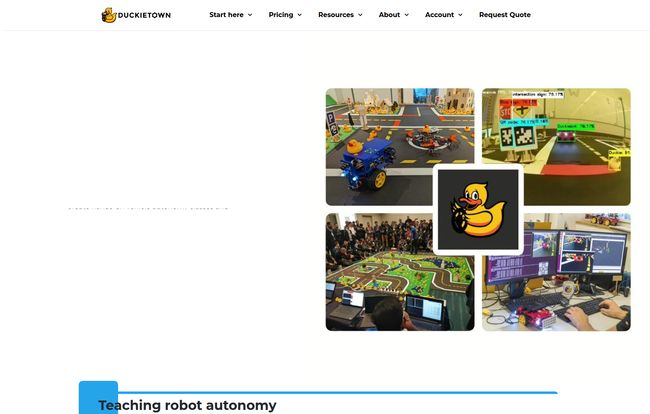
Visit Duckietown
Who Belongs in Duckietown?
One of the first things I look at is the target audience. Is this for kids? Is it for pros? Duckietown has done a pretty smart thing by creating different paths for different people. It's not a one-size-fits-all solution.
For the Curious Tinkerer and Individual Learner
Maybe you’re a student who wants to supplement your studies, or a hobbyist who’s always been fascinated by self-driving cars. For you, there's the Duckietown Personal plan. And get this—it’s free. You can access their online courses (they call it the Duckietown Online Self-driving Car course, or MOOC), get access to the simulations, and join the community. This is the perfect, no-risk way to see if it’s for you. Of course, the free tier doesn't come with the physical robot, but you can still learn a ton with the simulator.
For the Aspiring Hands-On Roboticist
This is where things get real. The Roboticist Experience is for those who say, “Simulations are great, but I want to build something!” This is a paid package that includes the physical Duckiebot. We’re talking a differential-drive robot base, a Raspberry Pi, a camera, and all the bits and bobs you need to assemble your own little autonomous agent. This is the core experience in my opinion. It's one thing to see code work on a screen; it’s another thing entirely to see it guide a physical object around your living room floor, successfully navigating around a shoe you left out.
For Educators and Entire Classrooms
Duckietown hasn't forgotten its academic roots. They offer comprehensive Classroom Kits and “Class-in-a-box” solutions for instructors. These bundles come with multiple Duckiebots, teaching materials, and everything needed to run a full course for a group of students. Over 160 universities are already using it, which speaks volumes about its credibility. It solves a huge problem for educators: how to give every student meaningful, hands-on hardware experience without creating a logistical nightmare. It provides a standardized, repeatable framework for teaching advanced concepts.
The Big Yellow Elephant in the Room: Pricing
Alright, let’s talk money. While you can dip your toes in for free, the full hands-on experience comes with a price tag. And yes, the hardware costs can seem a bit steep at first glance. I've broken down the main options below.
| Plan / Kit | Price | Who It's For |
|---|---|---|
| Duckietown Personal | $0 / month | Individuals, non-commercial projects, simulation-based learning. |
| Roboticist Experience | Starting at $299 | Individuals who want the full hands-on experience with a physical Duckiebot. |
| Classroom Kit (5) | ~$2,999 | Informal learning groups or small classes. |
| Classroom Kit (12) | ~$6,799 | Small to medium-sized classes. |
| Classroom Kit (30) | ~$15,799 | Typical for a full graduate-level university class. |
Note: Prices are based on the information available at the time of writing and may change. Check the official Duckietown pricing page for the most current details.
Is it expensive? Compared to a free mobile app, yes. But compared to a single university course or other specialized hardware kits, it's actually quite competitive. You're not just buying a toy robot; you're buying into a whole curated educational platform.
More Than Just a Toy: A Platform for Real Research
This is what really elevates Duckietown for me. It’s not just for learning; it’s also an open research platform. One of the biggest challenges in robotics research is reproducibility. A team at one university builds a custom robot and gets a result, but a team elsewhere can't verify it because their hardware is different. Duckietown helps solve this. By providing a standardized, affordable platform, it allows researchers worldwide to run the same experiments and build upon each other’s work more effectively. This is a huge deal for the scientific community, and it's a testament to the platform's seriousness.
The Potential Roadblocks on Your Journey
No platform is perfect, and it would be dishonest to pretend Duckietown doesn't have its challenges. Let's be real for a second.
First, as we discussed, there’s the hardware cost. The initial investment for the physical kits is not trivial, which can be a barrier for some individuals. Second, this isn't exactly a plug-and-play appliance. It requires a certain level of technical comfort. You'll be flashing SD cards, using the command line, and debugging code. It's designed to teach you these skills, but if you're expecting a seamless, Apple-like unboxing experience, you might be in for a surprise. This is part of teh learning process, but it's good to know going in. There's a learning curve, and that’s by design.
My Final Verdict: Should You Move to Duckietown?
So, after all this, what’s my take? I think Duckietown is brilliant. It’s not for everyone, and that's okay. It’s for the curious, the determined, and the people who learn best by doing.
“Duckietown bridges the agonizing gap between the neat, predictable world of computer simulations and the messy, unpredictable reality of physical hardware.”
If you're an educator looking for an engaging way to teach robotics, it’s a phenomenal choice. If you're a student or a dedicated hobbyist who wants to truly understand the nuts and bolts of autonomy, the Roboticist Experience is an investment in skills that are incredibly valuable. If you’re just a little curious, the free personal plan is a fantastic, no-strings-attached starting point.
It has successfully gamified a deeply complex field without dumbing it down. And for that, it gets a huge thumbs-up from me. It's a reminder that learning can, and should be, fun. Even when it involves advanced robotics.
Frequently Asked Questions About Duckietown
- 1. What exactly is a Duckiebot?
- A Duckiebot is the small, autonomous mobile robot you build and program in Duckietown. It's equipped with a camera and powered by a single-board computer like a Raspberry Pi, and its main job is to navigate the streets of your Duckietown, carrying a little rubber duck passenger.
- 2. Can I really use Duckietown for free?
- Yes! The Duckietown Personal plan is free and gives you access to the online MOOC, the software stack, and the simulator. This lets you learn the core concepts and write code for a virtual Duckiebot without any cost. You only pay if you want the physical robot hardware.
- 3. Do I need to be a coding genius to start?
- Not a genius, but some familiarity with programming (especially Python) and the Linux command line is very helpful. The platform is designed to teach you these things, but it's not aimed at complete beginners with zero technical experience. It's an excellent way to go from basic coding knowledge to practical robotics application.
- 4. Is Duckietown just for students?
- No. While it has strong academic roots and is used in many universities, it's also designed for individual hobbyists, lifelong learners, and even researchers who need a standard platform for their work on autonomous systems.
- 5. What kind of projects can I do with it?
- You'll start with basics like lane-following and handling intersections. From there, you can move on to more advanced topics like object detection (watching for other Duckiebots), fleet management, and implementing complex reinforcement learning algorithms for navigation. The possibilities grow with your skills.
